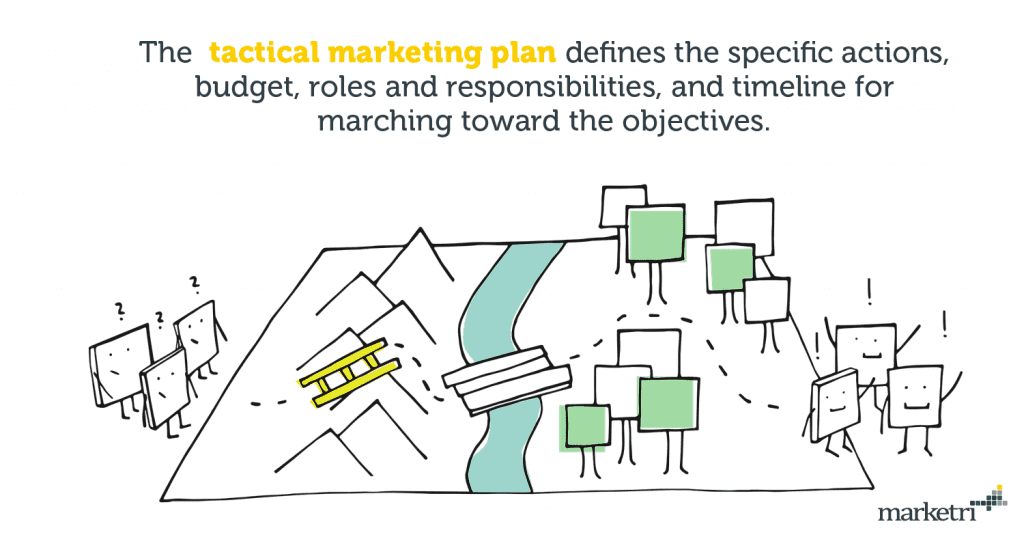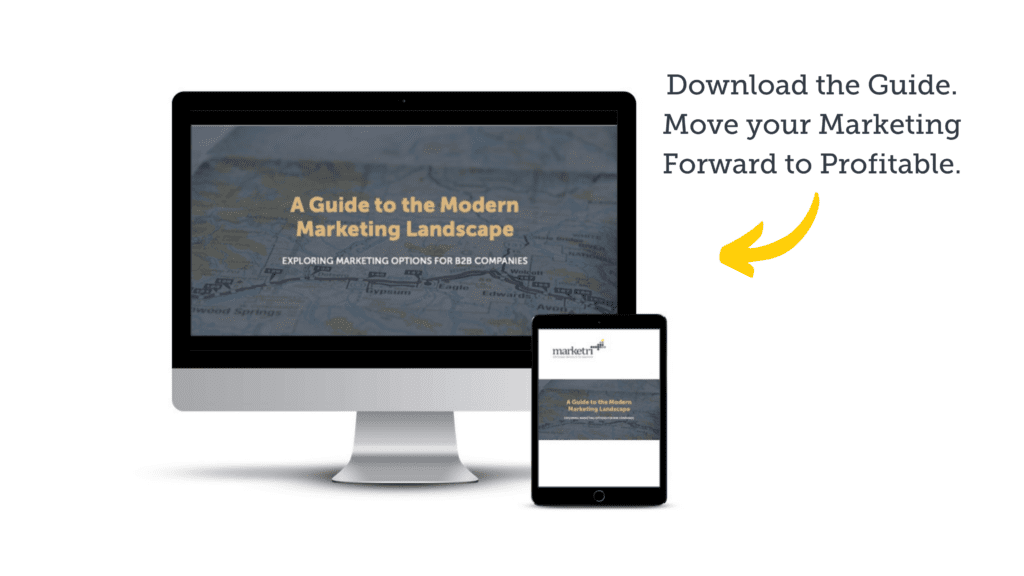What is Tactical Marketing?
Tactical Marketing Strategy
What is a winning marketing strategy if nothing comes of it? Enter: tactical marketing.
Tactical marketing often plays the role of unsung hero to strategic marketing, but tactical marketing is how strategy comes to life. After laying the strategic groundwork for how marketing will play a role in achieving your overall company objectives, a tactical marketing plan—which can also be labeled a “marketing action plan” or “marketing communications plan”—defines the specific actions, budget, roles and responsibilities, and timeline for marching toward the objectives.
What is the Difference Between Strategic and Tactical Marketing?
Typically, marketing falls into two overarching buckets: strategic and tactical. Simply summarized, strategic is what you are trying to achieve. Tactical is how you are going to achieve it.
Strategic marketing will answer questions such as: who is our target audience, how do we want to communicate our service offerings to them, and what perception do we want them to have of us? Who are we trying to talk to and what do we want them to do?
Tactical marketing will answer questions such as: where is our audience, what channels should we use to communicate with them, what content do we need to create to reach our goals, and when does it make most sense for outreach?
The dictionary defines tactical as “of or relating to small-scale actions serving a larger purpose.” Think of your strategic marketing plan as your larger purpose, and your tactical marketing plan as the actions that serve that purpose. The tactical marketing plan defines the specific actions, budget, roles and responsibilities, and timeline for marching toward objectives.

Why You Need Strategy Before Tactics
It’s important that marketing tactics support the marketing strategy. Covey says, “Begin with the end in mind.” Let’s think about cooking. It’s probably not in your best interest to open up your pantry and throw random ingredients of varying measurements into a pan and hope it comes out good. You need an end goal: What are you trying to cook? Your marketing assets will be your ingredients and your tactical marketing plan will tell you how much, where, for how long, and how to mix it together. In war, the strategy may be to capture the high ground. Tactically, how are you going to storm that hill?
What is a Tactical Marketing Plan?
While your strategic marketing plan may begin to address these items, there are a few things you should spend a little extra time planning before getting busy:
- What is the desired timeline for achieving your goals?
- What are the tools and resources needed to accomplish the plan’s objectives?
- What specific actions do we want our audience to take?
- How will we measure the success of our campaigns?
Every tactical marketing plan will look slightly different depending on the answers to the questions above, but should generally include:
- Details to achieve the goal
- How you’ll track progress
- Distribution channels
- Budget
- Resources to execute
Tactical Marketing Example
Let’s assume you work in a consulting firm trying to enter a new industry. To do this, you would need to establish yourself as capable of providing your defined services to this new audience.
- What you need:
- Case studies and testimonials
- Content to prove you’re a subject matter expert, such as:
- Blogs
- Guides
- Videos
- How you’re going to distribute these things:
- Social media
- Ads
- Industry publications
- Website & landing pages
You would also want to establish a cadence, or timing, of when you are going to create and distribute these new materials, plus a clear framework for tracking progress, particularly for stakeholders that aren’t involved in the work itself (e.g., executive leadership, sales professionals, operations people).
Need Both to Have a Complete Marketing Function
A word of caution, and to bring it full circle, what good is a strategy if you have no clear tactical plan for bringing it to life? Tactical marketing is an ongoing process of activity, evaluation, and optimization, and without a plan that centralizes the goals and the progress toward them, you may run the risk of becoming monotonous with your work, losing focus on a path toward growth.
“Marketing is not an emergency. It’s a planned, thoughtful exercise that started a long time ago and doesn’t end until you are done.” – Seth Godin.
How to Get Started with Marketing Execution
If you’re not sure where to start, take a look at your resources available to you. This guide will help you through which type of marketing provider can accelerate your growth and help you stand out from the crowded middle market:






